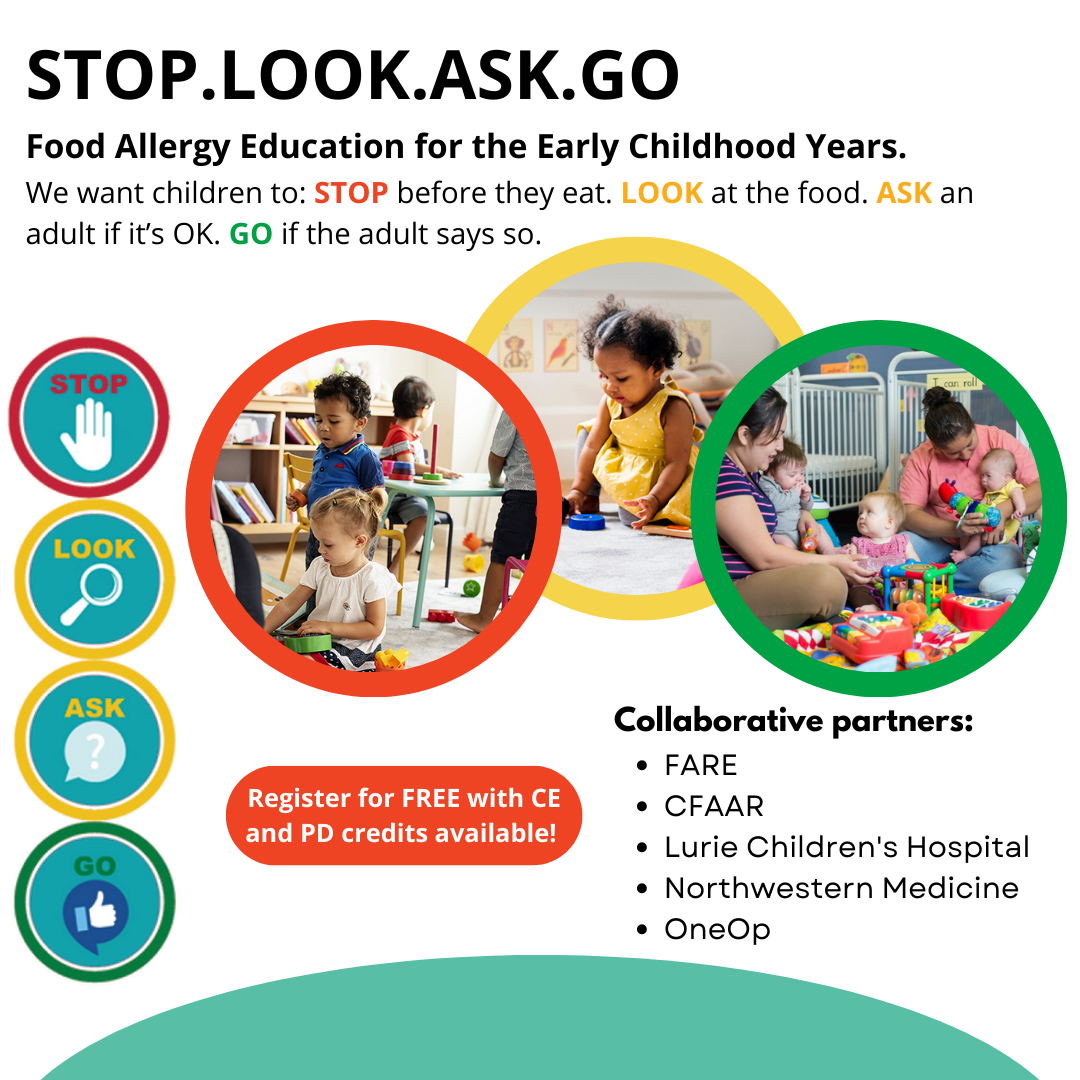This FREE online training hosted by FARE, the Center for Food Allergy and Asthma Research at Northwestern University, and Ann & Robert H. Lurie Children’s Hospital is appropriate for all adults working with young children in any setting. It provides necessary information, strategies, and resources to address food allergies in early childhood spaces. CE credit is available for early childhood professionals.
It’s easy to enroll!
- Go to: http://www.foodallergyacademy.org/
- Click “Register for Account” (if you are a new user) to create a free account.
- In the search box enter the word “STOP”
- Select the training “STOP. LOOK. ASK. GO: Food Allergy Education for Early Childhood Professionals”
According to the Centers for Disease Control and Prevention (CDC), food allergies are common, affecting 4% – 6% of children and 4% of adults.
Infants and young children are at a greater risk of potential food allergy symptoms; as providers, we must be well informed and prepared. This fact sheet from the National Food Service Management Institute provides answers to common food allergy questions
Common-Questions-Family-Day-Care-Providers-Fact-Sheet
If you have children in your care who have food allergies, these resources from the Institute of Child Nutrition can be very helpful.
This food allergy fact sheet for family child care gives information and tips for creating a food allergy policy and food allergy plans for children with food allergies:
Food Allergy Fact Sheet: Family Child Care
This sheet of frequently asked questions helps to answer common questions that family child care providers might have about children’s food allergies:
Snacks are part of the daily routine with young children and important for getting the nutrients they need as well as maintaining energy throughout the day. This tip sheet from the USDA offers great ideas for providers and parents for healthy snacking for children.
There are many benefits to getting locally sourced food for your family child care. Buying local supports the community economy, tends to be fresher and healthier, and empowers children and families to make informed food choices. If you are thinking about shifting toward buying more locally sourced food or just want some tips and ideas, this resource from the National Farm to School Network has some great information.




